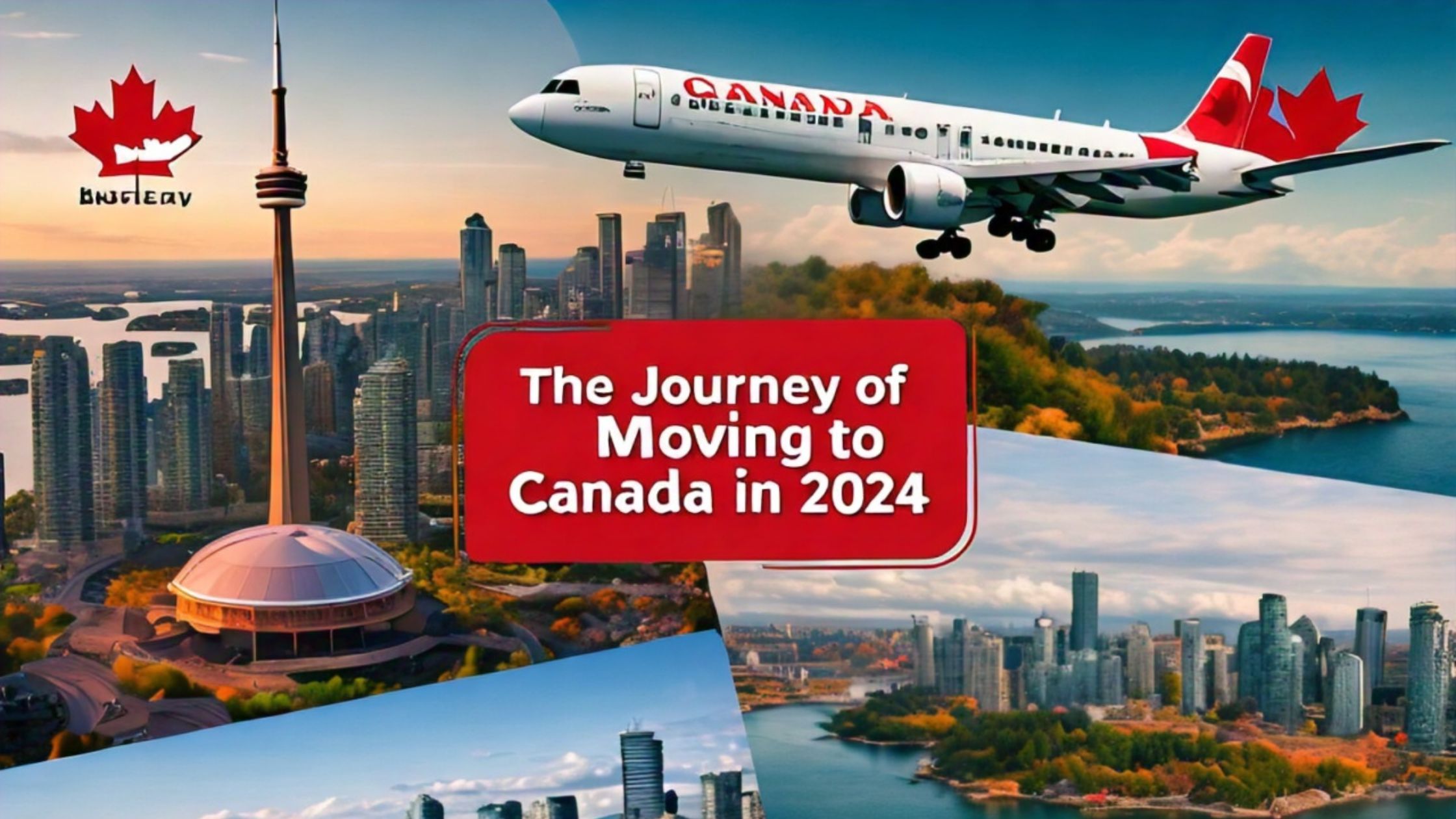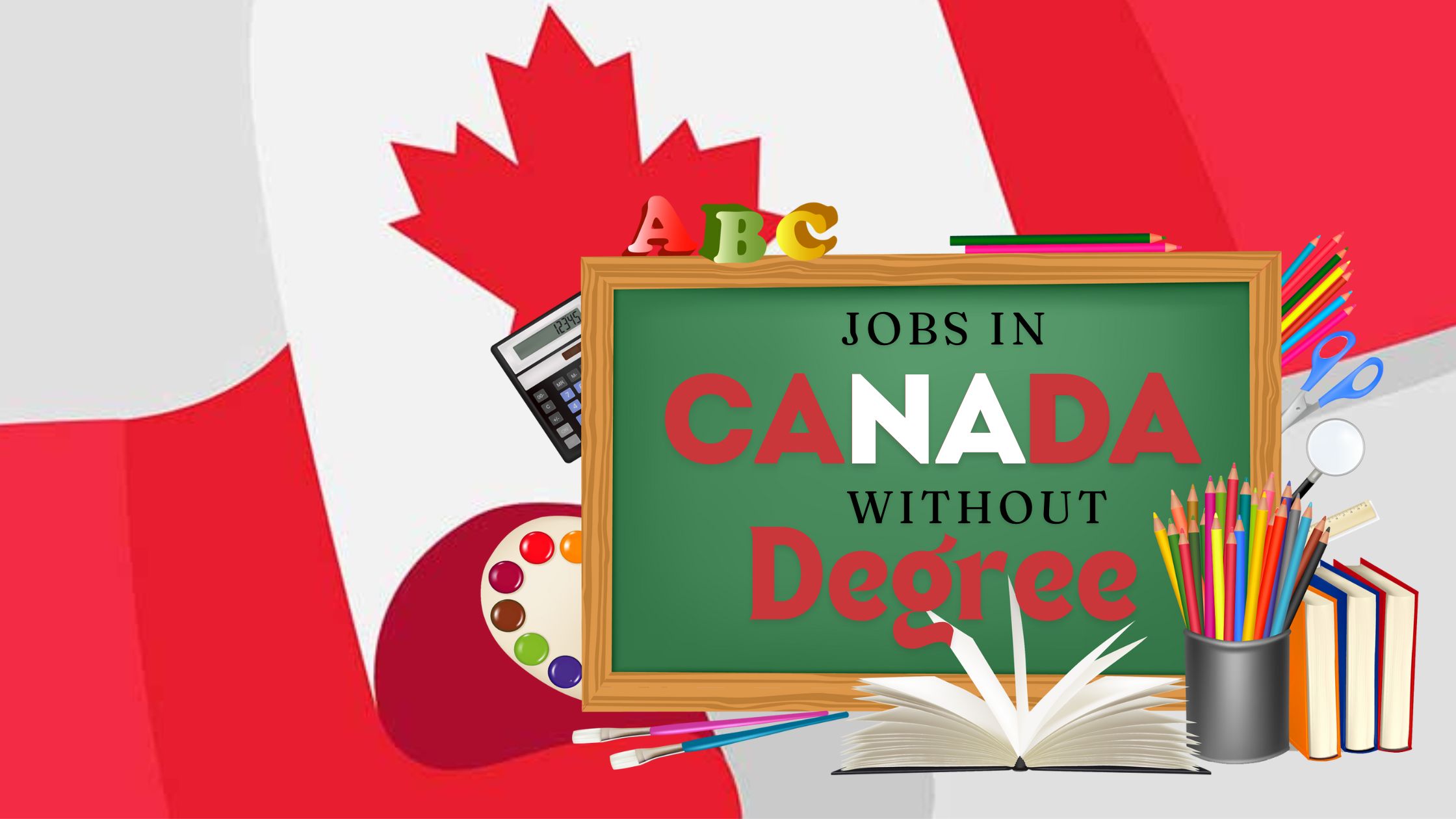Table of Contents
Are you planning to visit Canada in 2024? Look no further! Canada’s rich tapestry of culture, flourishing economy, and outstanding living standards make it an enticing choice for Nigerians looking for new opportunities. In this article, we provide a streamlined roadmap to the easiest way to move to Canada in 2024. We can help you understand visa requirements and explore relocation opportunities. With our help, you may confidently and easily pursue your Canadian dream. Say goodbye to uncertainty and hello to a more promising future in Canada. Let us go on this wonderful trip together!

Here is the Guide to the easiest way to move to Canada in 2024
1. Research Canadian Immigration Programs:
Begin by looking into the various immigration programs given by the Canadian government. Make sure you understand each program’s requirements, qualifying criteria, and application processes. Nigerians’ most popular immigration routes include the Express Entry system, Provincial Nominee schemes (PNPs), and family sponsorship schemes. Each program has its own set of criteria, and understanding them can help you choose the best option for your case.
2. Language Proficiency:
Looking for the easiest way to move to Canada in 2024? The easiest technique to accomplish so is primarily determined by your personal circumstances and qualifications. Generally, one of the simplest paths is through Express Entry, which includes numerous government immigration programs such as the government Skilled Worker Program, the Federal Skilled Trades Program, and the Canadian Experience Class. Another alternative is the Provincial Nominee Program (PNP), which allows provinces and territories to nominate persons based on their qualifications and experience. International students who have graduated from Canadian institutions may also have opportunities through the Post-Graduation Work Permit Program (PGWPP) or other provincial programs. To guarantee a smooth move to Canada, you must first assess your eligibility, obtain the necessary documentation, and maybe seek advice from immigration professionals.
3. Education and Credential Assessment:
If you have completed your education outside of Canada, you may need to have your educational credentials assessed for their Canadian equivalency. Organizations such as World Education Services (WES) can evaluate your credentials and provide an official report. This report helps Canadian employers and educational institutions understand the value of your qualifications.
4. Express Entry System:
The Express Entry system is a popular immigration pathway for skilled workers. It manages applications for three federal economic immigration programs: the Federal Skilled Worker Program (FSWP), the Federal Skilled Trades Program (FSTP), and the Canadian Experience Class (CEC). Create an Express Entry profile, and enter your skills, work experience, education, and language test results. If you meet the eligibility requirements, you will be placed in a pool of candidates and ranked based on a Comprehensive Ranking System (CRS) score. Candidates with high CRS scores may receive an Invitation to Apply (ITA) for permanent residence.
5. Provincial Nominee Programs (PNPs):
Provincial Nominee Programs (PNPs) allow Canadian provinces and territories to nominate individuals who have the skills and experience needed in their regional labor markets. Research the PNPs available in the province or territory where you intend to live. Each PNP has its own set of eligibility criteria and application process. If nominated, you can apply for permanent residence through the PNP stream.
6. Familiarize Yourself with the Application Process:
Once you’ve decided which immigration program is suitable for you, carefully evaluate the application process and required paperwork. Pay close attention to deadlines, document submission instructions, and any additional forms or fees. To avoid delays or rejection of your application, please give correct and comprehensive information.
7. Financial Preparation:
Moving to Canada necessitates financial forethought. Aside from immigration fees, you must consider the cost of living, which includes accommodation, transportation, healthcare, and daily expenses. Estimate your budget by researching the typical cost of living in your preferred city or region. It is also important to have enough money to support yourself throughout the initial phase of settlement in Canada.
8. Seek Professional Assistance:
Navigating the Canadian immigration process can be difficult, but professional help can make the path easier. Consider engaging an immigration lawyer or a licensed immigration counselor with expertise in Canadian immigration. They can walk you through the procedure, explain the requirements, and ensure that your application is correct and comprehensive.
9. Stay Informed and Be Patient:
Immigration processes can take time, so it’s important to stay informed and patient throughout the journey. Keep track of changes in immigration policies, program requirements, and application processing times. Regularly visit the official websites of the Canadian government, as well as reputable immigration resources, for updates and news.
10. Embrace Canadian Culture:
As you prepare to move to Canada, take the time to learn about Canadian culture, values, and customs. Familiarize yourself with the country’s history, geography, and social norms. Being open-minded and respectful towards cultural differences will help you integrate into Canadian society and build strong relationships with locals.

Here are some additional details to consider when moving to Canada from Nigeria
1. Health Insurance:
In Canada, healthcare is a fundamental right, with publicly funded services accessible to all citizens and permanent residents. However, it’s important to note that there might be a waiting period before you qualify for provincial healthcare coverage. To ensure you’re protected during this interim, considering private health insurance is a wise move. This extra coverage can safeguard you against unexpected medical expenses, offering peace of mind as you settle into your new Canadian life. Remember, your health is paramount, and having adequate insurance in place ensures you can focus on embracing all that Canada has to offer without worrying about potential healthcare costs.
2. Settlement Services:
Canada extends a welcoming hand to newcomers by offering comprehensive settlement services aimed at facilitating a smooth integration into society. These invaluable resources cover a spectrum of essential areas, including housing, education, employment, language training, and community integration. By tapping into these services, you can navigate your transition with confidence and maximize your experience in Canada. Seize the opportunity to leverage these tailored supports, ensuring a seamless adjustment and a fulfilling start to your new life in this vibrant country.
READ MORE: 8 Easiest Country to Move to in Europe: Your Ultimate Relocation Destination
3. Housing Options:
Explore the diverse housing options awaiting you in your selected city or province. From rentals to buying, housing costs fluctuate across regions. Prioritize factors like commuting convenience, access to public transit, nearby schools, and amenities while selecting your new home. Dive into your research to ensure a smooth transition to your ideal living space
4. Cost of Living:
The cost of living across Canada fluctuates based on location, with metropolitan hubs such as Toronto and Vancouver typically commanding higher expenses compared to smaller towns. When selecting your destination, it’s crucial to factor in both your budget and lifestyle preferences. Whether you’re drawn to the bustling energy of a big city or the quieter charm of a rural community, making an informed decision ensures your financial comfort and overall satisfaction. Take the time to weigh your options carefully, and tailor your choice to align with your personal needs and aspirations for a fulfilling life in Canada.
5. Weather Considerations:
Canada’s climate is diverse, ranging from cold winters to sweltering summers. Before you make your move, research the weather patterns in your chosen area. Armed with this knowledge, you may modify your outfit and gear to the seasonal fluctuations, assuring year-round comfort. From heavy parkas to airy outfits, being weather-savvy prepares you for a smooth transition into Canadian life.
6. Job Market:
Before you make your career move, dive into researching the job market specific to your profession and chosen location. Get a grasp on the demand for your unique skills and qualifications, and start scouting out job openings in advance. Networking, attending job fairs, and making the most of online job portals are excellent ways to forge connections with potential employers. By doing your homework and putting yourself out there, you’ll be well-equipped to seize promising career opportunities in your new locale.
READ MORE: Exploring 13 Job Opportunities for Foreigners in Denmark
7. Education Opportunities:
If you have children, explore the education system in Canada. Research schools in your area, understand the registration process and determine any additional requirements for international students. Canada is known for its high-quality education, and ensuring your children have access to good schools is important.
8. Social Integration:
Canada is a multicultural society that values diversity. Take advantage of community events, cultural festivals, and social clubs to meet people from different backgrounds and build a social network. Volunteering is also a great way to contribute to the community while making new connections.
9. Canadian Citizenship:
Once you’ve arrived in Canada, you may want to apply for Canadian citizenship. Citizenship comes with extra benefits, like the opportunity to vote and access to certain government services. Examine the eligibility criteria and prerequisites for citizenship and plan accordingly.
READ MORE: Australia in Search for Talents: Discover Your Next Career Destination
10. Stay Connected with Family and Friends:
Moving to a new country can be challenging, but staying connected with family and friends can help alleviate homesickness. Take advantage of technology to stay in touch through video calls, messaging apps, and social media platforms.
Remember that moving to a new country is a significant life change, and it’s important to be prepared and adaptable. Embrace the opportunities and challenges that come with your new life in Canada, and don’t hesitate to seek support and information along the way. Good luck with your journey!
In Conclusion,
Moving to Canada from Nigeria necessitates thorough planning, research, and respect to immigration regulations. Understanding the numerous immigration procedures, completing the relevant papers, and seeking professional advice as needed will help you launch on a successful route to a new life in Canada. Remember to be informed, patient, and appreciate the Canadian way of life. Good luck with your Canadian adventure!






